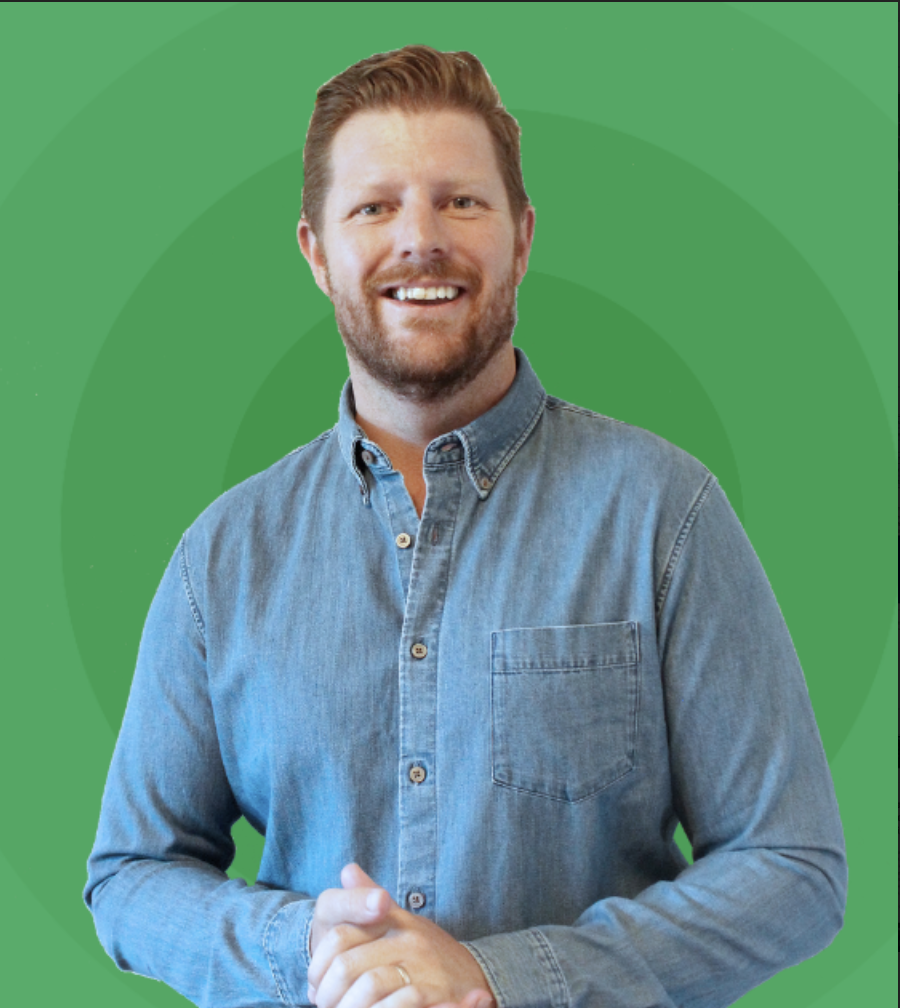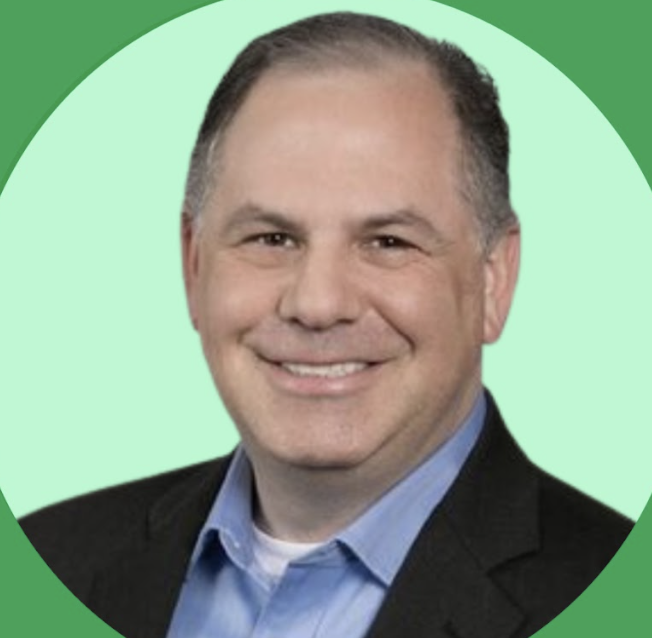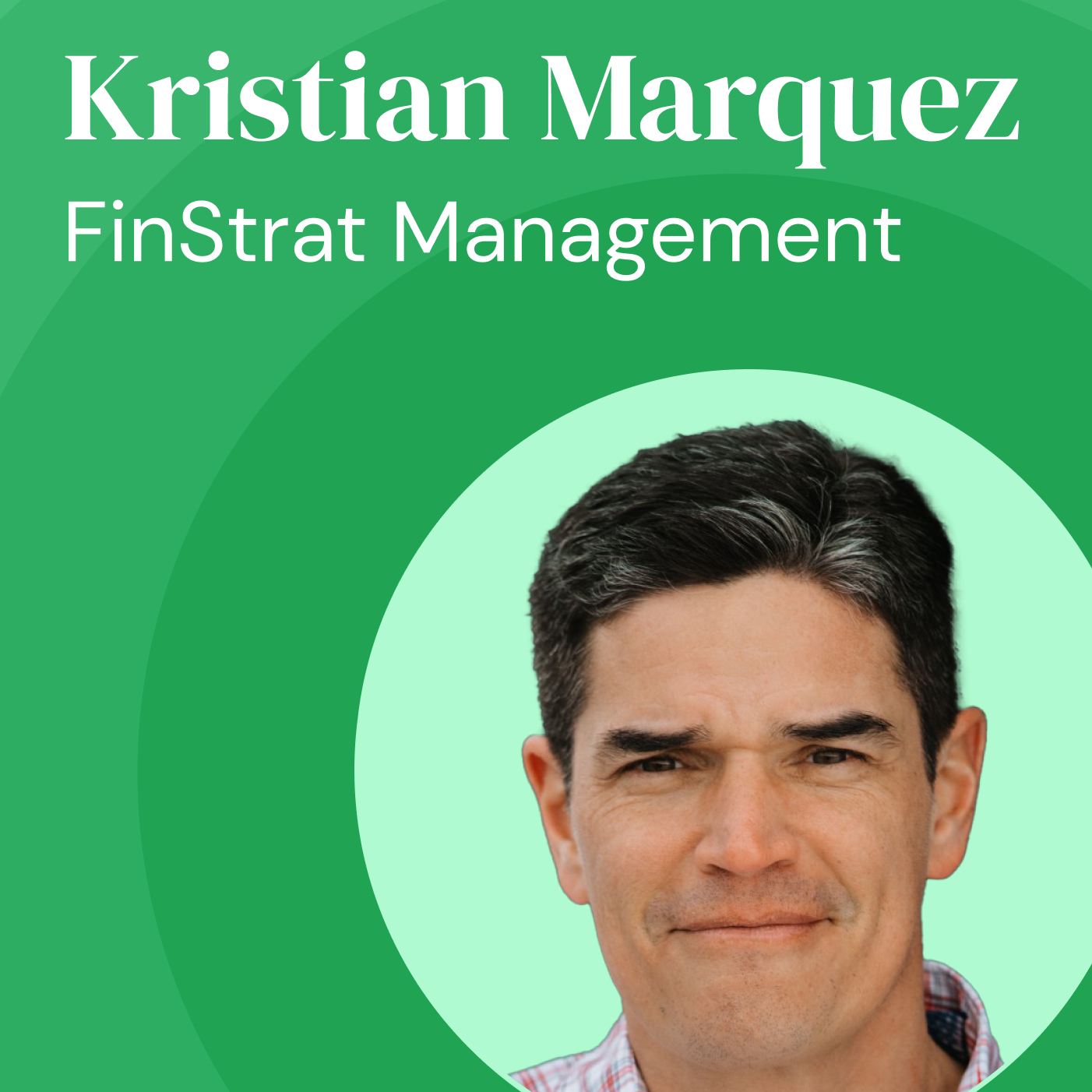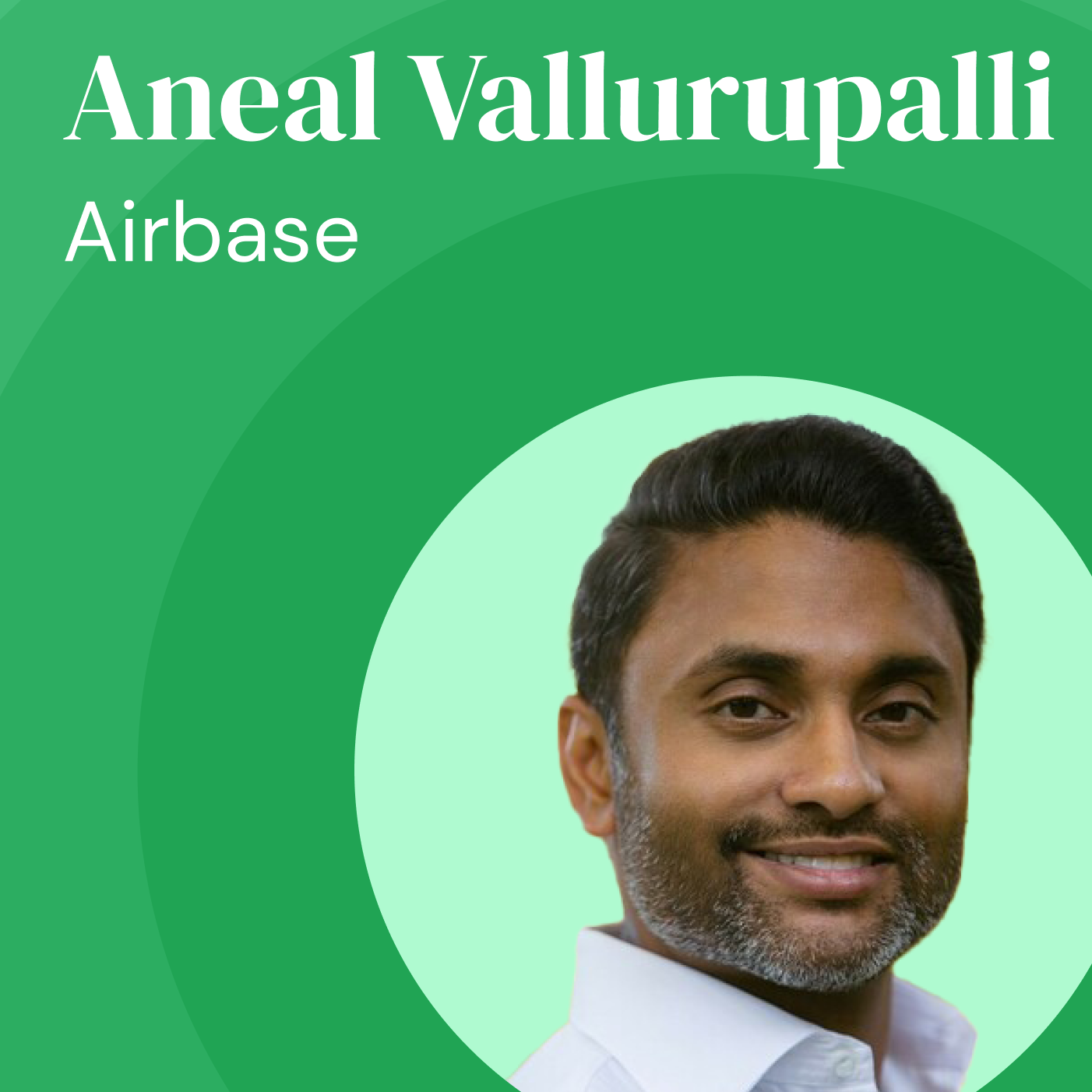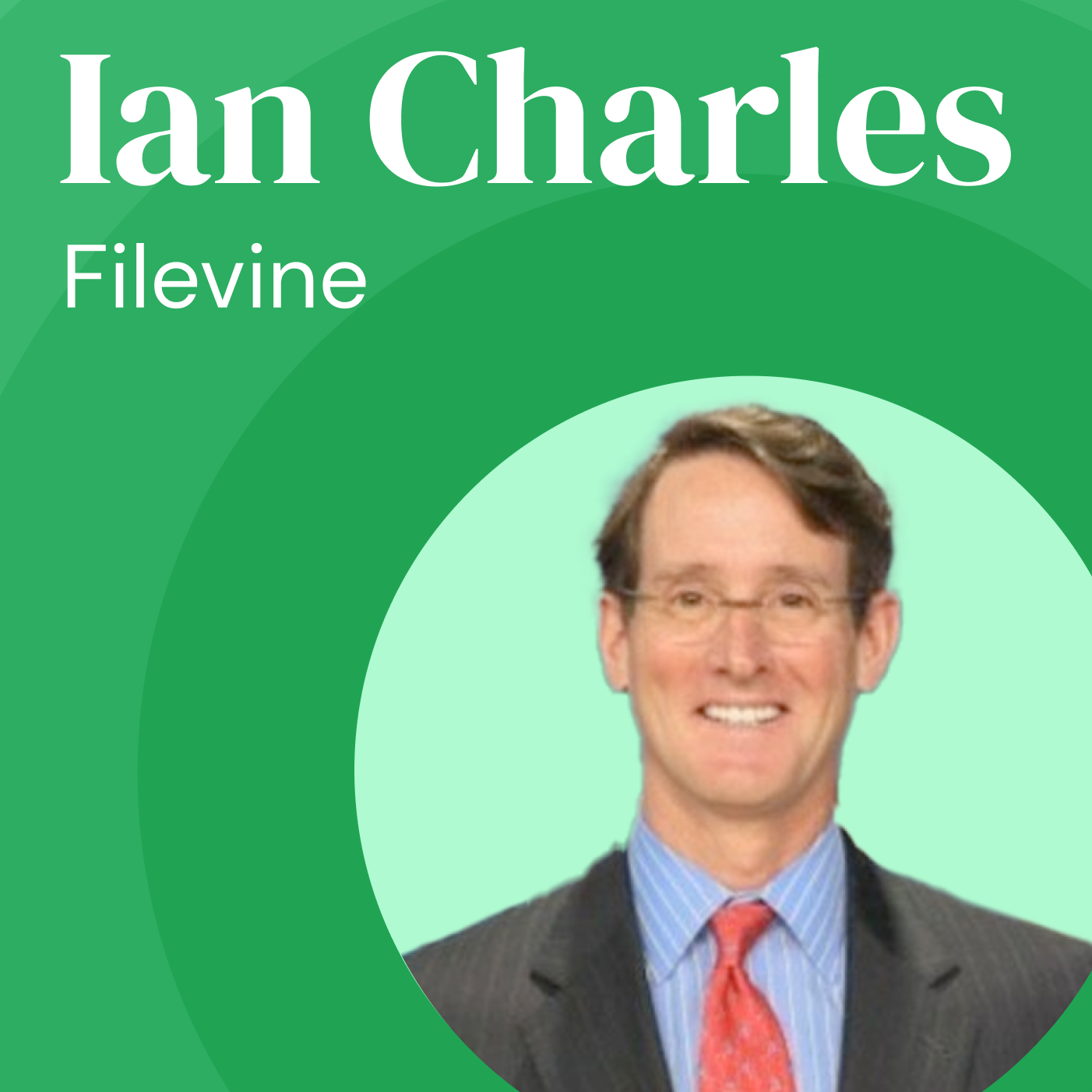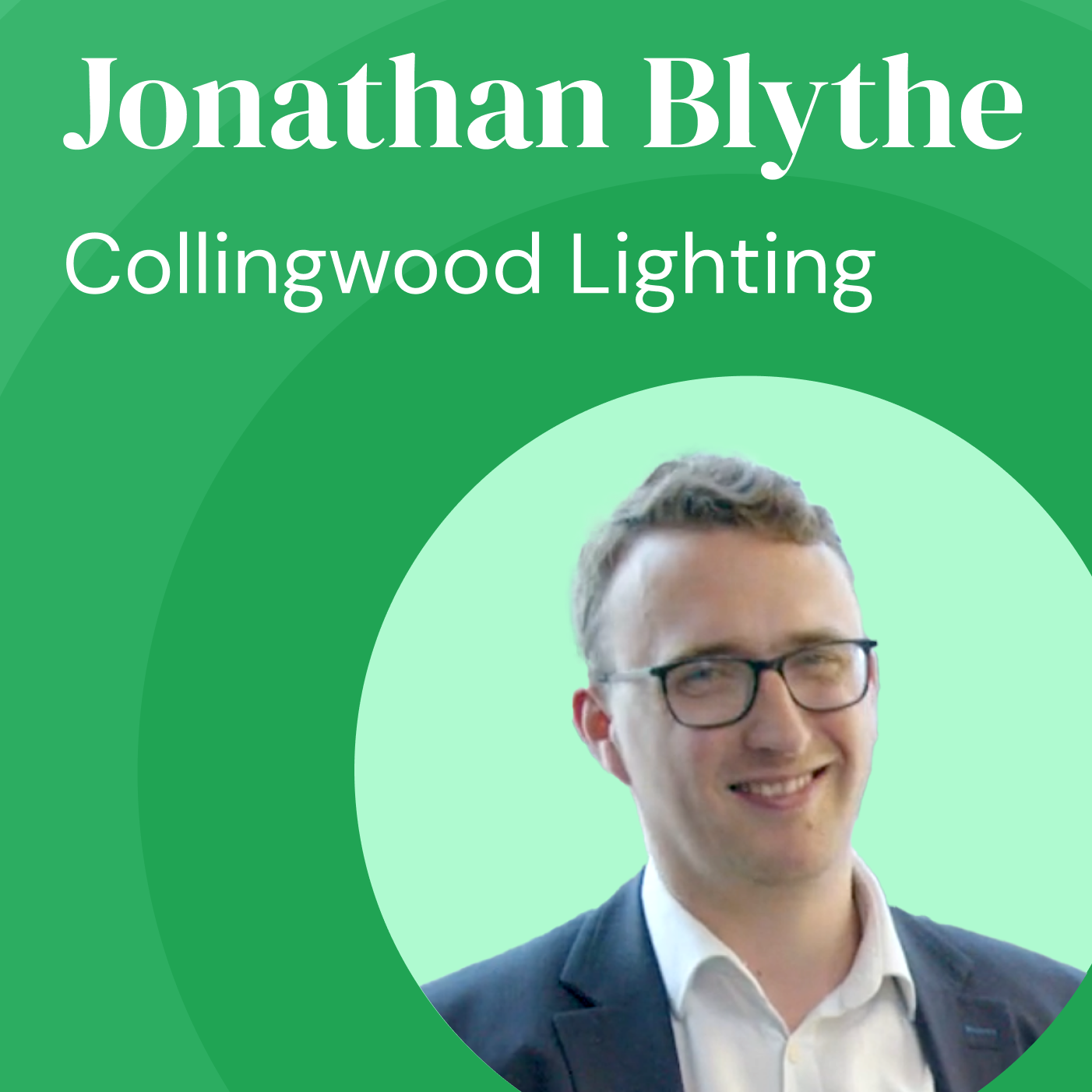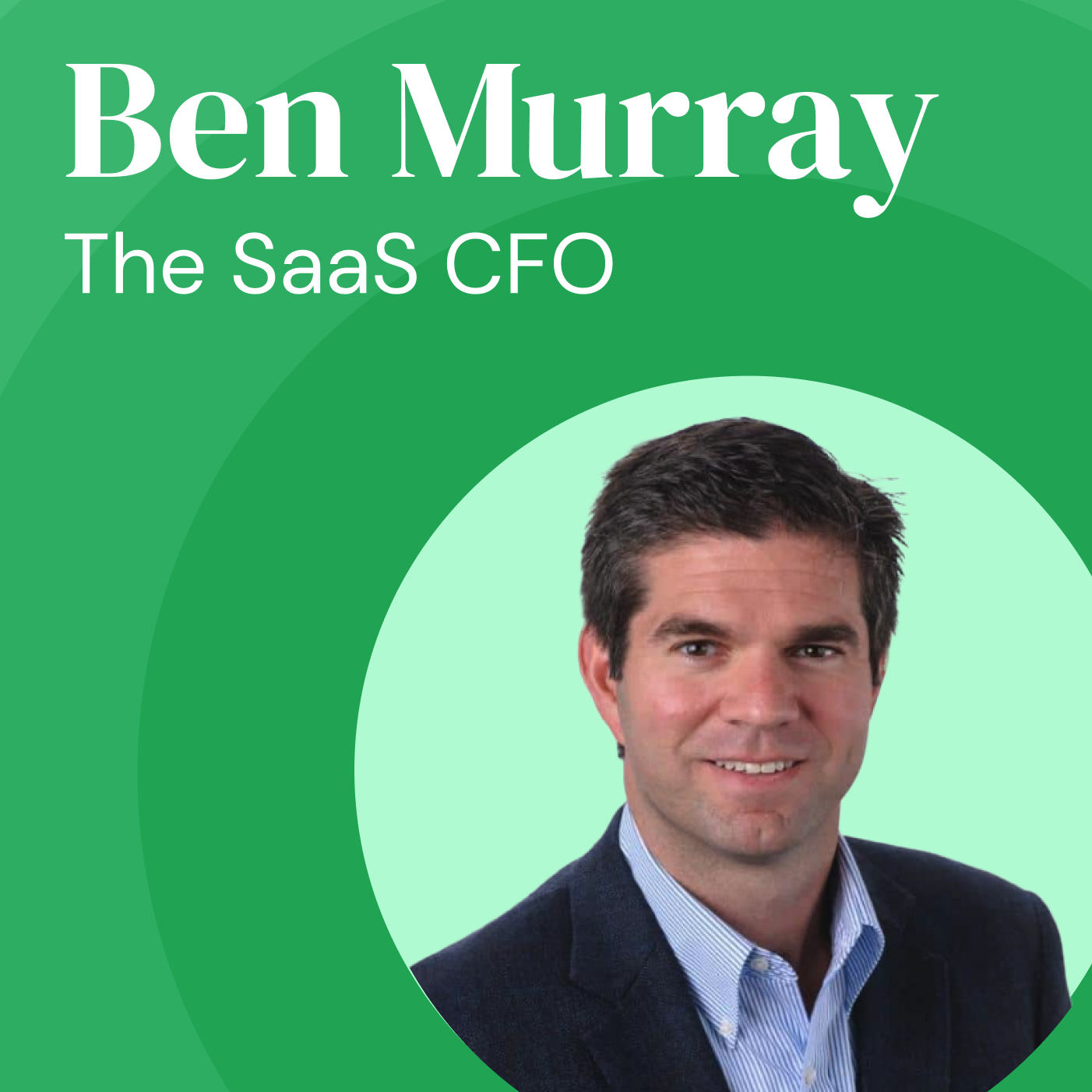Connecting The Dots Between Finance & Accounting | FP&A Fridays
- 0.5
- 1
- 1.25
- 1.5
- 1.75
- 2
Rowan Tonkin: Hi. I'm your host, Rowan Tonkin. And welcome to Being Planful. A show for FP&A leaders and planning experts. Happy Friday everyone. We're back. FP&A Fridays, we have the magnificent Glenn Snyder and the irrepressible Chris Ortega. Gents, how are we feeling today?
Glenn Synder: Feeling great.
Chris Ortega: It's a great day, man. It's August, the month is closing down halfway between the quarter. It's a nice sunny day outside, and it's FP&A Fridays.
Rowan Tonkin: Well, speaking of closing down, today's topic is going to be talking about somewhat of those processes I'm sure. I'm sure we'll get into the close process. But talking about connecting the office of the CFO through finance and accounting. It's a really important topic for everyone out there. When that is firing, it can add a tremendous amount of value to the business, but it also comes with its challenges especially as you think about those two houses and how they work and the way that they approach things very differently. We've made the jokes before. Right? If you get creative on the accounting side, you go to jail. If you get creative on the FP&A side, you get promoted. Right? So there's an element of creativity there. And a lot of CFOs I talk to, a lot of FP& A leaders. They always say, " I'm a recovering accountant." And they make the jump because they enjoy that creative side. First question, are either of you trying trained accountants?
Chris Ortega: Yeah. So me, I started off my career, my first six years of my career where at inaudible I did the Big Four. Start off at Ernst& Young. And then jumped into a high growth technology company from an accounting perspective. So, I originally started my career off at the good side of the force. And I got my CPA, got all that stuff. And yes, so I started off my career so for me I made that leap almost like, I've been in FP&A probably about 10 years. So about a decade ago is where I decided to, I was like, "Hey man, this is really the future of where this thing is going." So, definitely I'm a retired accountant. I can speak US GAAP, I can speak IFRS which are foreign languages to some, on the FP& A side. But definitely man, I've made that leap.
Rowan Tonkin: Well, this is going to be fun then because crosstalk. Go ahead, Glenn.
Glenn Synder: My whole career I guess I've been on the dark side of the force if you will. Just to use Chris' analogy there. I've been an analyst throughout my career. The funny thing is when I went through once majoring in economics in college, I was required to take a few accounting, and I absolutely hated it. And then my fourth job out of college was being trained as a commercial loan officer, at a regional bank. And they put me through so much intense accounting. You had to break down financials and understand all that stuff. So we did a lot of training on accounting. And I just remember after I went through it, I was like, " Yeah. This reminds me of why I did not want to pursue this." And I could definitely like that the creativeness that is required in FP&A where you start with a blank spreadsheet and you just build from there.
Rowan Tonkin: Well yeah, let's get into it. I'm not sure I liked the analogy about the dark side and the good side of the force. I think finance and accounting are the good sides of the force and sales and marketing are the dark sides. So let's maybe drop that one so that we can create some harmony amongst the office of the CFO. All right. Well gents, this will be a fun topic. And Chris, you get to play the voice of the accounting side of the house today and talk to some of their challenges and their frustrations with the creativity that us on the business side deploy and employee, and try and ask them to bend things that shouldn't bend. So let's get started. Why should we care about having a really strong relationship between finance and accounting? And Chris, I'll start with you being the former accountant.
Chris Ortega: Yeah. I think for me, it's three key business questions that I think accounting, finance, FP&A have to answer, right? What did we say we're going to do? What do we do? And what are we going to do about it? Right? For me when I blew right through it, accounting has always been that place of saying, " What are we say we going to do? And what do we do?" Right? That is a starting point, a foundation of any business decision as you want to make. So, when I was involved early in my career from a public accounting perspective and also at a high growth entrepreneur company, a sales company doing accounting work, that was always the starting point. And you have to have solid foundations, right? You have to make sure you're up to date with the ASC 606s of the world, the IFRS 15, the IRFS 18. Yeah. Yeah. Everybody listening. I know the language. I know the lingo, I know the guidance. Right? You have to have that. And to me, even right now in my current role of senior director of finance and in FP&A for Emarsys. I'm in close partnership with my colleague, Adam Vienna, who is the head of accounting, right? And to me, it is a constant conversation because everything feeds off of one another. When you look at the business planning, if you're trying to do a next six month forecast for the business and you don't have a solid accounting close process, you don't have solid processes and a segregation of controls. You don't have a nice documented and well solidify processes that are driving the KPIs. How can you really take that information and forecast the business? So to me, they are one in of the same and that's a direct partnership to have. But the thing about it is like, you got to make sure you're maximizing the efficiency on both sides. And you got to speak in accountant's language. I think too many times like financing and FP& A people go to accounts and they don't really establish that baseline like, " Hey, look, here's what we're looking to do. Accounts are going to be focused on the debits and credits. Here's how it close. Here's what the interest we need to have. Here's what that is." But I think connecting them to say, " Okay. Here's why this is important," but answers that business question is, " Here's what we're going to do about that information." And bring them along the journey. And I think one thing that I've really learned as leaders is that it's really important to be connecting with the county to focus them, and bring them along in that journey of what the bottom line results you're driving in. So. I think it's understanding their language. I think it's also making sure that you can dive into the details and have those solid processes and procedures, but also connecting with those accounting leaders to ultimately connect them to the vision of where the business is going. That's where I seem to be really successful.
Rowan Tonkin: Awesome. Glen, what's your perspective.
Glenn Synder: So I look at it in a way that... So in FP&A, we do not create any historical data. Period. That always comes from somewhere else, and on the financial side that comes from accounting. And when we have talked in the past, about you can't understand where you're going and how you're going to get there, if you don't know where you are. And that is the grounding that accounting provides. It is, " Hey, we're going to tell you exactly where your starting point is." I kind of know want that is. If you're a farmer, when you go over and plant your crops. And that you want to go and grow whatever fruit you're going to be growing. That seed that you're planting that's accounting. You can't do it without them. That you have to recognize their importance. And everything that you do builds off of what they do. So because of that, accounting is one of the most critical partners that FP&A has. And I do agree with what Chris was saying. Where you have to help them understand kind of where you're going. Because you want to give them that perspective. But you also want to make sure you are getting those insights from them. It is truly a partnership. It is not a one- way street. I've actually been, and finding this organization. Where they basically say, " Hey, accounting your job is to answer my question." No, that is not their job. Their job is to close the books and put it together and make sure everything ties out right. So that if you're a public company and you're putting your data out to the street, it's correct. Or if you're a private company and you're reporting numbers back up to your owner, the numbers are right. That's what accounting job is. What you have to go and make sure is that accounting understands that you have a job too and you can't do it without their partnership. And so you have to make sure that they understand the important role that they play in the process. You can't just go over and say, " Yeah, you know what? You're doing all your debits and credits. I'm the one telling the CFO where the business is going to go." You're going to just shoot yourself in the foot. You've got to make sure that the accountants are not only great partners with you and understand where you're going, but you want them to give you that heads up. You shouldn't be going to them and asking questions. When they see something, you want them to pick up the phone and call you and say, " Hey, by the way, I just saw this. And you're going to see a big variance in this area because we just booked this type of transaction." And that is a absolute critical thing too. Or FP& A can't be successful with that.
Rowan Tonkin: Yeah. I mean, the accounting team are the early warning system for surprises. No one, no one like surprises unless they're really good surprises. And even then sometimes that's not that exciting in a business unless it's like a massive bluebird deal, in which case some rep with sandbagging. Where I think, what you both said there is you can't know where you're going to go or you can't plan to go somewhere, unless you know where you are right now today. And if any of that information is inaccurate, then that new direction that you go is you could be leading yourself down the wrong path. Can you talk to me about, obviously accounting is something that you have to do. And oftentimes I've talked about that cognitive and non- cognitive and manual, and high value work. And often accounting can be put in that bottom left quadrant of highly repetitive, highly non- cognitive. And so it's a really ripe space for a lot of automation. And a lot of organizations try to minimize the cost there. But when you do that, you can often end up with a large impact to the business, which is your close takes 15, 16, 17 days. What is the impact to you as FP& A professionals when that occurs? When you have a 15, 16 day close, and how does that prevent you from doing your job?
Glenn Synder: Do you want me to start, or Chris?
Chris Ortega: Yeah. Go ahead.
Glenn Synder: Okay. So a long close kills the FP& A. Because the process that FP& A goes through for monthly reporting, starts with, " Okay. The books are closed." So if you are not starting, let's just take an average month. Let's say you're talking about March. And you go over and your books are not closed until March 15th. That means FP& A can't start looking at any of the numbers until March 15th. It usually takes a few days, maybe up to a week to go over, put the reports together, write up the analysis and then by the time you're having conversations with your business partners, you're talking about you're in the last week of March. When you're having that conversation with business leader, your data it's a month old. It's stale. Because they've already gone through another month by the time you start talking to them. So, that long close process really shoots you in the foot because you can't have a conversation that allows the business to build to react to where they landed in the prior month, and adjust from there. They're instead, they're doing it a month later. So you really want to look at trying to get that closed process, ideally down to five or six days.
Rowan Tonkin: Chris, what have you been? Where have you crosstalk in seeing this?
Chris Ortega: Yeah. I mean, I've been a part of this process, man. And we, in some organizations that I've been a part of, we were week number three before we were closing down the months and having consolidated data. Right? So really financing FP& A had only like four business days to do any kind of planning, any kind of analysis, any forward- looking. So the first ground that you want to say, and now we move our month end close to day number two. We have 80, 90% of the time that used to take with closed, just closing the books. Right? Now, we're spending that times like, how do we achieve it to our forecast? Where are we at on our KPIs? How we're tracking to the budget that we set out? So you really want to factor that time and make accounting as efficient and effective as possible, right? But it's also balancing accuracy and precision. Typically the accountants always want to be precise, right? And that usually that 10 or 20% of a balance sheet reconciliation or data, that's going to extend out. Right? That'll take another three to four days. And when you're working with an international company, like I'm at Emarsys. Those are cycle timelines are two to three days before you can get it. So, I think really working with the accounting, to balance accuracy and precision. Look as a high growth revenue company in SAAS, the precision area you want to have is your accounts receivable, your deferred income and your revenue. You want to have that 97% accurate. That's what I mean around precision. If not 99% to a hundred percent accurate, right? And some areas where you want to make it, I'm sorry, precision. Accuracy, I look at it to say, " Hey, can we make some assumptions around some bonuses or some commissions that we can just true up on a quarterly basis?" So really a sitting down with accounting and say, " What are those areas? Those key risk areas that we want to be precise, 97 to 99 to a hundred percent accurate in all of our data? Where do you want to be accurate in your information just say, 70 to 85%? We want to have it down. Right?" And really one thing that I went through that was all, and I would suggest all accounting, finance, FP& A leaders go through this. I actually had the opportunity to work through a Kaizen. Basically what a Kaizen is, it's establishing what is your baseline right now? So, we did it on the month end close process. And we were getting done middle of the month, almost a third week and we said, " Where can we... What is our baseline processes, all of our people, all of our deliverables that we have?" And then we identified the ideal state that we want to get to, which is day three of a close. And what all needs to happen, who needs to do what, what can we be accurate and precise about, what can we actually do and not do? And we really get it and we worked through that in the quarter. And we were able to go through that entire process where the accounting, finance and FP& A were involved to say, " If we can get it on day three, this is how much time that we can have forward- looking and strategic long range planning for the business." So I would, and that was a partnership with accounting. I would recommend all the listeners that if you want to deepen that partnership, that understanding and really accelerate that month- end close, do a Kaizen, right? Sit down and really whiteboard out and map out, " Here's all the different pieces that we need. Here's the bottlenecks, here's the constraints." It really lays down the path that you need to go do and then go execute towards it. So to me, you've got to have a very efficient balanced accuracy and precise month- end close. That is the starting point. That's the rocket ship that FP& A needs to land on, and actually go look towards the future for the business.
Rowan Tonkin: Yeah. It sounds to me something similar that I've experienced in my career, which is a productivity analysis, right? Like where, and then doing a gap analysis to become where we're efficient. So really interesting, Chris. And I want to stay with you just for a second. Tell me what it's like on your side. When your part as an accountant, cast your mind back 10 years back when you were on the accounting side of the house. What's it like when you're in a 15, 16 day close? How does it feel to you? And what are your struggles and pain points at that time that you're trying to break free off?
Chris Ortega: Yeah,. So I mean, I'm still wearing the controller hat now. So it's not like I'm far away from the month end close as I was 10 years ago. But I think when you're going through such a long and extended month- end close process with you, it is constant urgency, right? You're in a constant steady state where you've got everything done to a point, but you're waiting for two or three people to do their part of the job. Right? You're waiting for them to give you this data or they're in a rush on something they're giving you the data, and then it's not the right way that you need it so you're having to rework it all over again. Right? And to me, when you have those extended timelines, you're already doing the current month as you're closing the previous month. So when you're in those extended cycle, you're doing two months in like an extended period. You have constant overlap. And really when you get done with the close, you're already jumping into the close again. Right? Because when you're closing the books the second to third week of the following month, you're already in those closing activities so you're already always in a perpetual closing cycle. Right? Your perpetually trying to follow up and you're like, " I got to get this from this person." And they're like, " Well, do you need it for last month or you need it for this month?" And it causes a lot of inefficiency around communication. It causes a lot of inefficiency around commitment. And it causes a lot of inconsistency around getting results. Right? So, I've been in those cycles where you're constantly going through that. And you're ready to inform the business and you want to provide the insights, but you're providing so much of the past. You're looking so much of what we'd done, and you're not even spending so much even in a month of like, " Where are we going to go this month?" Right? And what I've also seen from a team perspective is that creates a lot of burnout. That creates a lot of people that are just like, they know that if this person did this or if they had a technology that made it more efficient. Or they had a partnership that made it more efficient, even accountants are focused on how they can make their job more efficient or do things outside of just the debits and credits. Right? And to me, I think that's where when you work on those places where you're leveled as the partnership, you clearly lay out the communication and also you leverage technologies, that's where you're able to bring everybody together. Now everybody is working. Accounts can work to make sure that they have the journal entries. They're centralized, and they're coming up with new ideas to take weight off of FP& A to say, " Okay. You're doing your long range forecasting on this. Well, I know deferred revenue, right? I know what our new entries are. I can see deferred revenue so, I could help you now that we're closing in day three, I could prepare a deferred revenue analysis that's based on all the contracts that we've sold. To give you the baseline to say, Hey FP& A, if we didn't sell another contract for the rest of the year, new business or existing business, here's what revenue's going to be." Right. Accounts know that. Accounts can supply FP& A directly with that information looking at deferred revenue. So, that's where you get in those conversations where you're able to partner and bridge some of those gaps, right? FP& A is helping accounting. Accounting is helping FP& A, and it's all about that balance. Versus like being in a three- week close process outside the month where nobody knows where the business is going. Accounting, finance, FP& A. Those are the advantages and some of the frustrations that I've seen when I've been involved in it, and can even still today involved in a month end close process.
Rowan Tonkin: And that's what Glenn touched on earlier, right? That that offset that it creates when you have that 16 day close or 15 day close, you're now providing the business with the information that is offset by a month. And so the insights are too light. And I really love that point, Chris, about how that then leads to this duplication of effort and inconsistency inside of the accounting team. Because you're looking at this invoice, " Which month is that for because now I just don't know?" It made me think, this is why so many finance people that I meet must be endurance athletes. Because they're so used to running above threshold, right? They're always running without oxygen, where if they were having a five day close they would have that oxygen where they could breathe. And that kind of whole concept of endurance athletes where they can just run without their muscles getting more oxygen. Glen you've probably worked, what we know you've worked in bigger organizations than Chris and I, right? When you scale to those bigger organizations, obviously you end up with much bigger accounting teams, multi entities, multicurrency, multi geographies. Can you talk through some of the impact that that specifically has on accounting and your experience in working with them? But how does that then translate to some of the challenges that FP&A have, with all of those same considerations? Right. FP&A is planning against different geographies, different product sets, different portfolios, different currencies. That must just consume compound and compound many of the problems, right?
Glenn Synder: It could. It depends on really the leadership within the accounting organization and how they're structured. I have worked, I mean, some of the companies I've worked at have had hundreds of legal entities around the globe. And sometimes they are focused on geographic differences. Because Europe is going to close their books one way, Asia is going to do it a different way, Latin America, third, while the US, fourth, mid Canada, fifth. And now if you're looking at a distance that cross of all the geographies, and you're trying to figure out what's going on, you have to go over and interact with five or six different people just to get that picture. Other times the accounting structure could be based on function of the company and they truly work globally. So, if you are looking at sales versus compensation or something, you might have a particular team that handles it globally. And they work on particular geo accounts. Certain groups might do revenue versus expense and those types of things. In that aspect, you can have a more streamlined conversation because you can speak to one person about the global organization. But for them to go and get specifics, sometimes that becomes more a difficult conversation because they have to go and pull in particular counterparts in other places. The hardest thing is that when you have to keep multiple books, right? So if you have a legal entity that is in Europe, they're going to be on IFRS. But if you're a US company you're consolidating in US GAAP. And when you get to certain things especially around like depreciation and amortization, there are a lot of differences in IFRS and US GAAP. So, your European team typically has to manage two different sets of books. An IFRS set of books and a US GAAP set of books. And you have to know based on the work that you're doing, what's the right conversation and what's the right data to be talking about, because otherwise you could end up with the accountant trying to do their best to answer your question. But if you don't ask the right question, they give you what they think is the right answer. And it may not be the right one. So that is where it is so critical to make sure that you understand, not only how the accounting group is structured but who the right people are in the process to make sure you're having the right conversation. Because everything that we talked about it before, you have to know where you are in order to start projecting about where you're going to be. And if you don't have the right definition from where you are, chances are your projections are going to be off. So it really comes down to making sure that everybody's grounded and understands who the right people are. Sometimes having a large organization is not a bad thing, because you get a lot of experts on different things, different areas of the company, different geographies. The biggest thing is to be able to navigate it and know who are those go- to people to make sure you're having the right conversation.
Rowan Tonkin: I love that. And it's one of the, Elon Musk has this principle of go directly to the person who can solve your problem. But often in big organizations, and I'm sure this is a problem within Elon's organization is, how do you know who that is sometimes? Right? And so that's not unique to any organization because there are many people that just have those specific resources. And if you don't know you have to go and find out. That's up to you in your role, is to figure out who is that person and know, and go and get that cut through.
Glenn Synder: And Rowan, I'm going to add one more thing. Because oftentimes when you have a large organization. Especially accounting teams that are not based in where your headquarters are, they may not have that full business perspective. If you are a accountant in Ireland, you may not know what is going on in the US. So if you know, " Hey, I know that accountant. I know exactly they are the person that can answer my question." But they may not understand where you're coming from. So it's not always about going to the person to directly answer your question. Sometimes you got to have that higher level conversation with their boss or their director or whatever, to make sure that the right context we put in place to get the answer you need.
Rowan Tonkin: Love that, Glenn. Thank you. Chris, one element we haven't talked. We've talked a lot about closing the books. Once they're closed, we've got to do something with it, right? We've got to tell people about it. And that's our reporting process. When you are in a high performing accounting team, what does reporting look like?
Chris Ortega: Yeah. I think reporting in a high performance accounting team that has accelerated and bridge the gap of the month end close. That's where typically where I see it is like, I'm not working with people that are just like, hey, they get done with month-end close, and they're like onto the next invoice that they need to code or the next entry, the journal entry to put. Right? I've seen accountant say, " Okay. I know we passed the baton off to FP& A, what does reporting look like? Right?" I think a common one is the budget to actual variance, right? And at Emarsys and other organizations that used to just be an exercise that FP& A did. And they were like, accounting was like, " No, no, no. We closed the books. That's where we handed off to you guys to go do." And it's the typical analysis, biennial budget to actuals, variance analysis is like that should be in the Harvard Business School case and it's like that's the starting point. Right? But where I've always said is like, this is an opportunity to help accountants connect the dots of where the business is and where it's going. So I would take time with them and say, " Hey, you were the... And also again, Glenn mentioned getting to the person that's the closest. I would even take it a step further and say, you want to get to the person that's closest to the details. Right? Accountants know that. If you look at professional services was budgeted at$ 25,000 and now we have it at$ 30,000 and that's a$5, 000 in one month which is 20%, that it goes above the variance analysis. Right? We want to look at everything above a thousand euros and 10%. That triggers. That flags it. Right? But it's beyond to just say, " Oh yeah." I would go to the accountant say, " Hey, we went over$ 5, 000. Is this a trend that you're seeing? Is this a one- time piece of it? What's driving that? Was this an assumption that we are going to consider going forward?" And working directly with them and say, " Hey, listen. Let's look at these together. Let's go through it and this is why I'm looking at it. And these are questions that I'm asking." Because now if you take that time, energy and effort that first time, they're going to know what you're going to ask going forward. They're already going to know it. And now you just enable and empower them that they're almost your little FP& A people already. Because they're going to say, " Oh man, I know Chris is going to ask me about this. And this is what he's going to ask for. This is what he's going to be looking into. So let me just already drop that out there for him. Right." And just say, " Hey Chris, it was a one- time invoice. We had to pay this 401k fee. It was one time. We missed it in the last quarter. It should be at the budget and baseline, but it should be at the budget and right going forward." You've already got all the work done and now they're more impactful and enabled to know the business. So to me, I think the reporting aspect is is the landing ground to now get accounts to see more of that forward- Looking. Right? It's the budget to actual. Some of the other things that would we do inside the business that I partner with the accounting group on, is getting to see the bookings and the revenue performance, right? They see it and they do the reconciliations at the entity levels. But here's what this is going, right? We had a forecast that we set out for FS7, which was at this number. This is this number, right? This is where we're tracking. Right? This is why this number is important that we've crossed over X amount of dollars in a month because that's why this SAAS metric is important. We just achieved something and it's connection. Right? And one thing that I've seen is like accounting people. They want to know... That's their baby, the books, the numbers. That's their baby. They want to see it get handoff and like, " Okay. This is where it's going. This is how that number is going to mature to be an adult or an NBA player at some point. Right?" They want to have that piece of it. So, I think connecting them on the reporting, is a great way to connect the accountants to the future where the business is going, but also to enable their knowledge and to upskill them. Because let's be honest, accountants are always the first landing point that if you want to find FP&A... There's a lot of accountants right now that are looking at this saying, " Yes Chris, I'm an accountant but I want to be in FP&A, how do I make that leap? And where do you go find that talent?" It's typically in the accounting space. They know the numbers, they speak the lingo. They probably have the art of storytelling, and some of these other things that we talked about, to help them bridge over to right FP&A. So I'm always always curious, I'm always recruiting as well. As a finance person, as a leader in a finance, I'm always recruiting, where are my superstars? Where are my hidden gems in people? And I typically always go to the accounting team. And my accounting leaders may get mad at me to say, " Hey, Chris, you're always plucking our people and taking them over to FP&A." But I think that's where that's a huge value add for accountants.
Rowan Tonkin: I love that Chris. It kind of formulates on our concept that we talk a lot about the partnership side of FP& A. Right? But that also extends directly inside your own function. Right? Finance and accounting are better together. Finance and marketing, are better together. Finance and sales are better together, right? When we add these two things, one- on- one plus it becomes three if we can do those things. And it's really, really powerful when it happen. And one-on- one can often equal one and a half if it's not an exact like, if you're in that 16, 17 day close because now we're offset. Right? Like Glen was saying earlier. Say, it's really interesting as we've been talking, like how intrinsically linked these organizations are. Of course they are, they have to be. But often you hear about the fact that they're almost siloed in some instances. And we have spoken so many times on FP& A Fridays about just connecting two parts of an organization. The same is true of finance and accounting. If you're in an organization where that feels closed off, reach over the aisle, go and be that person that tries to bring that together. You'll find that your job becomes easier. And the accounting team will probably feel like their job becomes a little easier. Glen, anything we've touched on that you think, " Wow..." When we're talking finance and accounting, this is a really big topic that we need to cover.
Glenn Synder: So I think there are two things. One, was something that Chris was talking about as you kind of go through when you do your budget variance analysis. Oftentimes the inaudible, I have been working at larger companies, so what they usually do is kind of a soft close before consulting validations get done. And usually at that point, I always ask my FP& A team to go and have meetings with their accountants, while they're working through the variance analysis before the books get closed. So that they can look at what is going on, have that detailed discussion around vendor contracts that Christ was talking about. But accountants are people too, and sometimes people make mistakes. And oftentimes when a FP& A person comes in and looks at the books from a certain trend or view or a certain perspective, they might catch something that wasn't booked properly. And by having that discussion before the books are final, it really helps the accountants to make sure that they're not going to have to go back and make prior period adjustments inaudible. So I think sometimes it's not about FP& A correcting accounting because that's not the right thing. We are not instructors on how they do their job and you did crosstalk. It is more of, " Hey, I was expecting to see this. You booked it in this way, is that really the right thing? Or should this have maybe been approved in this way instead or something?" And how have that conversation, that partnership conversation with the accounting team. Because I have found more often than not the accountants come back and say, " Oh, you know what? We weren't even looking at it that way. You're right. Let's go fix that." And so you made sure that your... What was the books of final you're actually landing in a better spot. And on top of that FP& A through that conversation, naturally what comes out of that is the variance analysis. And you could go over and explain what is going on because you're having a conversation with the accountants. So my first point is, don't wait until the books are closed before you start having that conversation. The accounting team is a very strong partner but FP& A, I've never been in a company where FP&A does not have access to the general ledger and can start looking at things. Before the books become final and you have those conversations. The second thing that I wanted to bring up, is really around reporting. Because FP& A reporting and accounting reporting are different. And that the accounting reporting it's legal entity base, it's used typically by your tax team to make sure that taxes have being paid and people are looking at that way. It's also used for public reporting because they are financial statements. When you were going over and looking at FP& A reporting, that is a management report that is typically purely internal. It's about insights. What do I need to know so I can make better decisions? And it is oftentimes more forward looking, while accounting report is backward looking. And to just to make sure that it's okay to have both accounting and FP& A doing reporting. But they need to understand where they connect, but also what makes them different. And to make sure that the accounting group understand... To also by the way, if you are in FP&A and you are not sharing your reports with the accounting team in some way, to let them know how you're using their numbers that's not a very good partnership. Share the information, make sure that people have that understanding of, " Hey, here's what FDA is doing with it. Here's how they're looking at their reports." Because that partnership that by giving them information back, it's just as critical to them as them giving the information for you to start to reporting. So, that is truly a two way street you just want to make sure you have that strong inaudible.
Rowan Tonkin: Yeah. I love that. And I actually want to extend on it for one moment, Glen. Which is FP& A, you don't find a business partner on the accounting side for sales and marketing, for example, right? So FP& A is also the translator for some of those accounting principles to folks like me. I never studied accounting. I studied computer science, right? So I understand how the internet works so I have no idea how our books work. But I rely on my FP& A team member to help me understand key accounting principles and how certain expenditure will get recognized, how that impacts my budget, how I should think about that for planning. And so you can't be a great advisor to your business partner, in my case marketing, if you don't understand, if you're not the voice of accounting for that organization as well. So it's also your responsibility as an FP& A leader or an FP& A person responsible, to be the voice of accounting to the business and not like some... Often you hear about accounting often can be the enemy because they're the ones that are doing it this way. We're doing it that way for legal reasons. You've got to go and justify and help explain to someone else why it's all being done that way. It's very important that it gets done that way otherwise they go to jail and your CFO is not happy, and your company's in trouble. Right? So, I think one thing that I want the audience to hear out of this is become that translator for the business. And ask those key questions to your accounting team. " Hey, what do you need the business to know about this process? I will hope you tell that story. I will use my position as the partner to be your voice within."
Glenn Synder: And Rowan, let me add one more thing. You want to make sure... One of the most frustrating things that I have heard from accounting is when a business leader, somebody in marketing or sales or operation, calls them up directly and starts asking them about something, but they don't know how to speak the accounting language. And the accountant interprets what they think the question is, they answer a question but then the business person is like, " No, that's not the answer I was looking for. That doesn't answer my question." Now both sides are getting very frustrated. By having FP& A go and be the translator. Be that liaison between the two groups. FP& A to understand the business, but they have to understand accounting. And they can go over and make sure that it's the right question being asked, and you're telling them the right story and you avoid a lot of that frustration. The second you get the executive business leaders calling up accountants, " And why did you make this actual?" You are having the wrong conversation crosstalk.
Chris Ortega: Oh men. Yeah. Don't do that. Don't do that guys. Don't have your business people calling accounts. I've been in those situations. I've been on both sides of it. That gets really, really highly stressful for sure.
Glenn Synder: Yes. And if you are an accounts payable clerk. And you are a relatively low level person, and a senior vice president calls you up about a particular vendor lying that they've seen a report somewhere, that clerk is freaking out because they're like, " Oh my God, I have a really senior person calling me. I got to answer their question, but I have no idea what they're talking about." It's just not a good situation. So you want to make sure your business partners are going through FP& A, and let FP&A answer the question and give those answer back. And by the way, it's a great thing to say, " Hey, I inaudible the accounting person back with me when communicating back to the business to make sure that not only are you giving them credit for their work, but then they can hear the business person asking the question and how I think it translates it to make it work for them.
Chris Ortega: I mean, just to add to what Glen said real quick, Rowan. To summarize it, right? You want FP& A to be the financial translators in the business. That's literally what you want them to do. Right? You got the business, maybe speaking a different language, you've got accounting speaking a different language. You need to be the business interpreter in between that process. Right? And that's where it's super successful for everybody because accounting knows, " Hey, I have Chris Ortega that can speak my language. He can speak the FASB, he can speak the US GAAP, the IFRS. But then also I got Rowan that says, " Yeah,. I can go to Chris and he doesn't sound like a robot or like a lawyer or something. Right?" Be the business, financial interpreters and translators. Right. That is the key of it. And that has a level of humility you have to have. You have to come to accounting and you got to humble yourself. Right? You gotta really humble yourself and the same thing for the business. But it is all about starting with that place. And there's no better partner that I had throughout my career. Yes, sales and marketing. I love working with them. Those are my guys. They're my men and women. I love them so much. But my real my ace in the hole that I'm just like, " Hey, we're in the trenches together." I'm typically in the trenches with accounting. So you got to make sure you're being that financial translator and that influencer, but also making sure you're connecting the dots between both angles.
Rowan Tonkin: And to kind of carry on something that Glen was saying, which is bring that accounting person in. That comes something to that you were saying, Chris, which is that's the talent pool. Right? So when you can bring in the accountant in there, you're also showing them the path to nurturing them as talent, to help them understand the real world impact of what they're doing. But you can do it in a way where you're protecting them and your being there as their translator. but they get to learn, " Okay, this is when I do it this way, that's how it impacts the business. When I do it this other way and both could be right, this is the other impact to the business." And it helps them really kind of come along in their journey. And then as Chris said, that's when you then start poaching them once they get really good at that, it's like, now it's time to bring them along. Right?
Glenn Synder: Yeah. One other thing though, is that keep in mind, if you are a staff accountant and you're sitting there and your job, you're booking your journal entries and you're doing that. Now, all of a sudden you're invited to a meeting with the senior vice president, chief marketing officer, that is exposure you don't normally get. And the accountants are excited about that. "Oh, I'm going to see more about what..... I'm going to hear from this person what's going on in the business," by just giving them that exposure. You are building a lot of credibility with those accountants because you are not saying, " Hey, look, I'm FP&A. I own these relationships. You don't get to talk to them. You're bringing them into that circle. You're helping to enhance that relationship, build the trust on the accounting side as well, and that is going to pay dividends down the road.
Rowan Tonkin: And frankly as someone who's had my FP& A team member bring the accounting team to meetings, it's sort of helpful because we get to shortcut a lot of stuff. Like they're in there going, " Journal entry. Here it is. Here's that. This is how it's going to translate." And I'll be like, " Oh great. All right. We solved that problem in five seconds. That was amazing because this person knows the detail inside out." And we can have that conversation super quickly inside of the business, without this email chain that takes four days to go back and forth and finally get the answer. So the other advantage for a business person like me, is I get to see solutions to questions far faster than I ever would if that translation has to happen over email or something like that. That quick huddle can solve so many problems and you can really get to that happy place much faster, or even as a bad place but you get to the facts much faster.
Glenn Synder: And Chris said something, the last time he was talking about being humbled. And FP& A oftentimes you think, " Hey, I got these great relationships with all these business executives. I'm helping them solve all these problems. I'm a stud. I'm the guy that everybody wants to talk to." You know what? Shut up. Let's take a step back. Go over and bring your partners with you and say, " I can't solve everything on my own. This is a team effort. And her business leader, I want you to go over and have to know who the person is who booking's these things, and then let's make sure we're all having that conversation together. I don't need to be the center point of every conversation. I just want to make sure that the conversations are being had and they're being had in the right way. That's if you could go and do that and take your own ego out of it, you solve so many more problems. You do it faster and become a better partner with everyone.
Chris Ortega: And just to add to that, and I think this is really important for everybody that hears this. Because there's going to be accountants listening to this right now and be like, " I'm ready to make that jump to FP& A." But I think it's so much value in this one question when you're trying to work through and give you tangible takeaways to go build that partnership, right? Go to accounting and say, " You know what? I need your help. I'm struggling to understand this. Can I get some time with you to just walk me through and understand their perspective?" And it doesn't matter if you're a junior FP& A or you're leading FP& A. When you do that with accounting, as much as we mentioned it breaks everything down. Right? And you're just like, " oh yeah, I see. This is what that means." The biggest one that I've worked with is ASC 606, right? One of the biggest accounting pronouncements that have changed that is revolutionizing revenue. It's align IFRS and trying to explain that to a VP of sales person. Right? But I worked with our auditors. I worked with our head of the accounting and say, " Guys, I need your help in this." And that deneutralizes so many conversations when you go to a person and say, " Hey, I'm struggling with this. I know you're a subject matter expert with this. I need your help. And I want to take some time to listen and understand your perspective." In any situation with any business partner and stakeholder, you do that. You've deneutralized everything. And now you get that accounting side is like, " Oh man, this is the person that is doing all this stuff in there. They can do this and that they want me to help them." And typically that is how you get the momentum and the ball rolling. Right? And it pays so many dividends. And accountants right now, let's be honest. Accountants right now, want to do the creative, the sexy, the awesome stuff, that FP&A is doing. Typically about 80% of them want to do that, but they're too shy, they don't know how to start doing it. They don't know if they have the skills. They don't know if they have the talent. They don't know if they have the personality. But it's all about getting them down that row. And the more that FP& A can help move the value proposition that connect the dots for accounting people, the more awesome FP& A is just going to be overall.
Glenn Synder: One quick thing, just to add to that when I was at Digital Realty. The FP& A group was on the 32nd floor, the accounting group was on the 31st floor. I would be on the 31st floor, probably two or three times a day. I would go down there and talk to them inn person and say, " Hey, here's what was going on. I could use your help on this. Can you walk me through how you do this or help me find this?" And just making sure that you're having that connection. And I was a VP of running corporate FP& A and I was down there all the time talking to the various people in accounting, because they were that critical inaudible
Rowan Tonkin: Glen, I would have been on the 31st floor all day because I'm afraid of heights, so I would have wanted to be on the lowest floor possible available to me. But that's another story. Guys, it's been an amazing session. And for those listening, if you've got all this way and you're an FP& A, send your accounting team this episode of the podcast. They may not be listening given the title is FP& A Fridays. Send this to them and get their perspective, ask them what they thought about it. Because it will open up a conversation about your two roles and how you can help each other. And it'll be a really interesting conversation for you in finance and those in accounting to really open up a lot of what we've talked about. So, please definitely click that share button on Spotify or wherever you get your podcasts, and share that with your accounting team because they hopefully will learn a lot and you'll learn a lot from them too. So for today, FP& A Fridays is over. We'll be back next week and really looking forward to it. Have a great weekend, everyone.
DESCRIPTION
Finance and accounting are better together. On this round of “FP&A Fridays”, Rowan, Chris and Glenn talk about connecting the office of the CFO through these two houses. Tune in to find out how doing this adds value and creates harmony in the business, what a high performance accounting team looks like, how to get finance and accounting speaking the same language, and much more.


